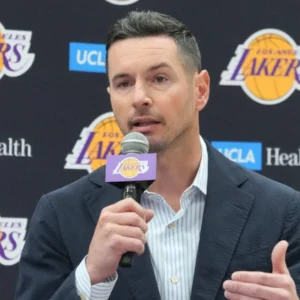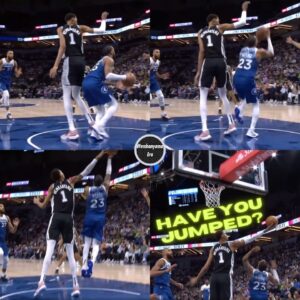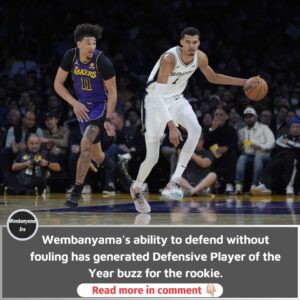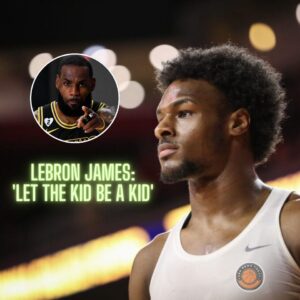The Spurs boast a generational rookie talent in Victor Wembanyama, a nice young supporting cast and perhaps the greatest coach to ever do it. So why are they this terrible?

Let’s get this out of the way at the beginning: Everyone loves Gregg Popovich. He’s a five-time NBA champion, the league’s all-time winningest coach and he led the US men’s national team to a gold medal at the 2020 Olympics in Tokyo. Furthermore, if some tragic world event occurs, Pop is the person in the NBA most would want to hear from (Doc Rivers and Steve Kerr being next). But affection can’t get in the way of a difficult question. So here goes: Why are the San Antonio Spurs so bad?
This year, the Spurs have a sub-.200 winning percentage. They’ve barely broken double-digit victories after playing 55 games (they’re 11-44). The Spurs also boast one of the best and most exciting NBA players in rookie Victor Wembanyama, along with several other talented young guys like Devin Vassell, Keldon Johnson and Jeremy Sochan. Can we really live in a world where the New York Knicks are the paragon of decision-making and the Spurs are somehow the dregs? But maybe there is a method to the team’s recent madness – for their fans’ sake, let’s hope so.
Going into the 2023-24 season, the Spurs were the big offseason winners. They’d received the right to select Wembanyama with the No 1 pick in the 2023 draft. The 7ft 4in big man from France has been breathlessly hyped as the best prospect in the history of team sports. He can shoot from the outside, dribble like a wing and defend like a spruce tree. But, as Wembanyama said, he came into the NBA not wanting to play center. With a slight frame and a desire to show his outside skills, he didn’t want to be forced to only bang below the basket.
So the Spurs, led by their Hall of Fame coach, who recently signed a reported $80m extension, acquiesced and began the season by playing a starting lineup that included the middling center Zach Collins and no true point guard. To the surprise of few NBA die-hards, the team got off to a slow start, despite a couple big November wins against the Phoenix Suns. However, in a late December game in Portland, when asked pregame if he’d been scouting rookie Scoot Henderson, Pop replied, “You check our record?” Meaning, he wasn’t spending time thinking about other players when his season was going this poorly.
Now, though, Wembanyama, who is averaging about 20 points, 10 rebounds and a league-leading three-plus blocks per game (including 10 in a recent win), is playing center. Collins is on the bench and Pop has finally begun to start young point guard Tre Jones. As a result, the Spurs even enjoyed a two-game winning streak in mid-January. In the second of those, San Antonio beat Minnesota, which is one of the best teams in the league and one that boasts several talented big men of its own. In that game, Wemby notched a 23-point triple-double and Jones scored 12 points with 11 assists. The question is, though, should the 75-year-old Pop have done this earlier. And, if so, why didn’t he?

Ahead of the 2023-24 season, the coach said he and his team would work with a wait-and-see approach to Wembanyama’s development. They wanted to bring him along slowly and let him and those around him make their mistakes – better now than later, the thinking went. And that’s fine. Rookies need time, games, years. Seasoning. Few rookies are on contenders in the beginning, even if Wemby is supposed to be on the level of those like Larry Bird and Magic Johnson. And both Pop and Wemby seem to get along well so far. Regardless, though, the main worry is this: could the lowly 2023-24 season create a negative impact on his development? Or that of his youthful supporting cast? Indeed, has Pop’s strategy been too risky?
Maybe. Any outcome is always possible. Even with the best of care and intentions, injuries or setbacks could happen. However, when it comes to someone the size of Wemby, the worry carries even more weight. As the Frenchman’s career unfolds, his best-case scenario is an NBA life like Kareem Abdul-Jabbar’s – another very tall, transcendent center who was famous in his teens. Kareem played for two decades. The worst case scenario, though, is someone more like Yao Ming or Ralph Sampson – giant, other-worldly talents whose time was cut short due to lower-body injuries. There is no guarantee any rookie will dominate in the future. And, it would seem, that’s even less so with a giant like Wembanyama. To put it succinctly, do the Spurs really have time to mess around?
So where is the veteran leadership to help? Outside of rarely used Devonte’ Graham or journeyman Cedi Osman, there isn’t any. Despite a lot of young talent, there are no players on San Antonio who’ve proven themselves as winners. For Wembanyama, who looks as often like a baby deer on the court as he does a generational player, he needs someone to tell him at times go there, do that. Too often he’s outside, playing with the ball, and that’s exactly where opponents want him. Not inside near the rim he can touch on his tip-toes. In the Spurs’ final game before the All-Star break, the team lost to Dallas (who have two great point guards) 116-93. Is that good, to lose by 23? Wemby is 20 years old. Where are the adults to hone his game?
“If you thought the Spurs were making significant moves last offseason besides adding the No 1 draft pick, that’s on you. They told us they weren’t. You can agree or not with the approach, but they were upfront and public about it,” Jeff McDonald, Spurs beat writer, recently wrote on Twitter. He added, “[T]he Spurs wanted to observe Victor over the course of a full season, see how he adapts to the NBA game or doesn’t, then go out and buy the pieces that mesh best.”
In Kareem’s second season, his Milwaukee Bucks traded for Oscar Robinson and went on to win the 1970-71 championship. Later in his career, he played with Magic Johnson and “Cap” won five more rings. Yes, having an all-world point guard is important. Yet, to date, the Spurs have refused to bring in a lead guard to play with Wemby. Earlier this year, there were rumors about trading for Dejounte Murray. Before the season, future Hall of Famer Damian Lillard batted his eyes at the franchise. In the summer, San Antonio could have signed restricted free-agent Austin Reaves away from the Lakers. Or they could have packaged some of their promising young guys – Vassell is averaging close to 20 points per game, Johnson is scoring around 16 and three others are in double-digits – for a big-name vet. The Spurs also boast a number of high draft picks – their own and several more, including a handful from Atlanta in the deal that sent Murray to Atlanta. Yet, all they gave Wemby in year one was Jones, a talented, albeit untested second-round pick, who Pop inexplicably refused to start for the first half of the year. Why?
“There is a zero percent chance the Spurs are going to just ‘run [it] back’ next season. If they do, I’ll help all y’all sharpen your pitchforks,” McDonald, tweeted.

Perhaps this summer will be the turning point. If so, the Spurs would’ve had a year to watch Wemby adapt to the NBA. Theoretically, they’ve seen who he plays well with and the team could put together a package of assets to trade for a star like Trae Young, LaMelo Ball, Darius Garland or Cade Cunningham, all of whom could be available for the right price. And there are other point guards a tier below who may be available to sign, like Chris Paul, Kyle Lowry, Mike Conley or Malcolm Brogdon. Or maybe Jones himself will turn into an All-Star. Over the past two years, he’s averaged about 12 points and six assists per game and he’s only 24. And while he’s just 6ft 1in tall, Wemby will be behind him to blot out the rim like a T-Rex does the sun.
All of this could be true. Yet, what’s most puzzling is why Pop, whose last winning season came in 2018-19, has seemingly dragged his feet. It started early this season, when he decided to start not only Collins but Sochan, a forward, at point guard instead of Jones. In a way, the only explanation for this could be to ensure the Spurs were bad this year. Maybe that was Pop’s grand plan? In the NBA, there is incentive, after all, to being bad. The worse the record, the better the draft pick. Or perhaps there’s another possibility.
Maybe Pop was stacking the psychological deck against his budding star in Wembanyama? Since the cerebral Frenchman talked after he was drafted about playing forward – not center – and about handling the ball, maybe Pop gave him his way – without a credible point guard – to prove Wemby’s rookie ambitions were untenable. (He is known for sending messages, after all.) In the same way parents make their kids smoke a carton of cigarettes if they catch them taking a drag, maybe Pop was playing mind games? Maybe, maybe not. But before the season, he did talk glowingly about “adding more wins.” Now, Pop says he will increase Wemby’s workload post-All-Star break.
So far, it would seem, no real harm no real foul. The Spurs weren’t going to win a title this year no matter what they did. Wemby is playing at an All-Star level (with a historic usage rage, despite limited minutes) and, after 55 games, he inevitably has a better idea of where he fits and who on the current roster works around him. Those are victories. And with a few moves in the offseason, the Spurs could be a playoff team, perhaps increasing their win total to 30- or even 40-plus games. Still, though, bad habits can grow like mold on a petri dish if you’re not careful. This year, some on the team, including Johnson, have regressed. His minutes have been cut when he should be blossoming. Last year as a starter, Johnson scored 22 points per game, this year that’s down to around 16 and he’s regularly coming off the bench.
Indeed, every strategy has unintended consequences, collateral damage. Perhaps regression like Johnson’s is unavoidable. In the end, though, why the Spurs are so bad this year is part-obvious (benching Jones) and part-nebulous (is it all part of some plan?). The hope, of course, is that the skyscraping Wemby, now an NBA pitchman, hasn’t or won’t lose ground as a burgeoning star. Given the Spurs bottom-feeding record, there is nowhere to go but up. Many fans hope so. The NBA is better when the Spurs are good. The NBA is better when its premier rookie is playing in meaningful games. Fans want to see Wemby against the best and, as noted above, everyone loves Pop – even if we don’t always understand him.
I hope you appreciated this article. Before you move on, I wanted to ask if you would consider supporting the Guardian’s journalism as we enter one of the most consequential news cycles of our lifetimes in 2024.
With the potential of another Trump presidency looming, there are countless angles to cover around this year’s election – and we’ll be there to shed light on each new development, with explainers, key takeaways and analysis of what it means for America, democracy and the world.
From Elon Musk to the Murdochs, a small number of billionaire owners have a powerful hold on so much of the information that reaches the public about what’s happening in the world. The Guardian is different. We have no billionaire owner or shareholders to consider. Our journalism is produced to serve the public interest – not profit motives.
And we avoid the trap that befalls much US media: the tendency, born of a desire to please all sides, to engage in false equivalence in the name of neutrality. We always strive to be fair. But sometimes that means calling out the lies of powerful people and institutions – and making clear how misinformation and demagoguery can damage democracy.
From threats to election integrity, to the spiraling climate crisis, to complex foreign conflicts, our journalists contextualize, investigate and illuminate the critical stories of our time. As a global news organization with a robust US reporting staff, we’re able to provide a fresh, outsider perspective – one so often missing in the American media bubble.
Around the world, readers can access the Guardian’s paywall-free journalism because of our unique reader-supported model. That’s because of people like you. Our readers keep us independent, beholden to no outside influence and accessible to everyone – whether they can afford to pay for news, or not. If you can, please con





